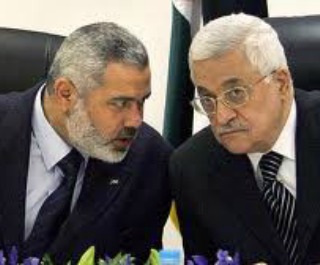 Washington, DC - Commenting on the status of ongoing Israeli-Palestinian peace efforts,
Americans for Peace Now's President and CEO Debra DeLee issued the following statement:
Washington, DC - Commenting on the status of ongoing Israeli-Palestinian peace efforts,
Americans for Peace Now's President and CEO Debra DeLee issued the following statement:
"APN's position is clear: Negotiations are the only route to resolving the Israeli-Palestinian conflict, and the only resolution to this conflict will be a mutually agreed-on two-state solution. However, the past nine months of peace efforts, led with admirable commitment and energy by Secretary of State John Kerry and his team, have failed to bring the parties closer to a two-state outcome. The current state of this peace effort exposes three structural weaknesses in the current process: the manifest bad faith of the Netanyahu government; the profound weakness of the Palestinian leadership; and the absence of adequate rules-of-the-game - and consequences for breaking these rules - put in place by the Obama Administration as the steward of these efforts.
"There is no alternative to the two-state solution, and such a solution cannot be imposed on or by either of the parties. Negotiations that can deliver an end to this conflict and deliver a two-state outcome must remain the goal of anyone who cares about Israel, about the Palestinians, and about U.S. interests in the Middle East. However, as we have made clear in the past, negotiations must not become an end in themselves. Process is not synonymous with progress, particularly when non-serious negotiations are abused and exploited to undermine the very possibility of achieving an agreement. Given this reality, the current pause in negotiations may be a welcome development. It can provide an opportunity for all involved to engage in much-needed soul-searching, house-cleaning, and costs-benefits analysis about the way forward.
"For Israel, a pause in negotiations is an opportunity to consider the costs and risks associated with walking away from a diplomatic solution to the Israeli-Palestinian conflict - including increased political and economic pressure, loss of international standing, and a growing movement toward unilateral recognition of Palestinian rights. A pause strips away the political cover that has allowed the Netanyahu government to consistently put the Greater Israel/settlement agenda over the best interests of all Israelis. The fact that the Netanyahu government broke off talks over the Palestinians' efforts to unify their own leadership - efforts that were welcomed by most of the world - only underscores how isolated Israel is in its current positions.
"For the Palestinians, this pause is an opening to move forward with internal political reconciliation and elections, which together can deliver a strengthened Palestinian leadership that is credible and empowered to negotiate peace with Israel on behalf of all Palestinians. It is also paves the way for the Palestinians to forge ahead with their efforts to obtain recognition in the international arena. So long as all of these efforts are predicated on the rejection of violence and support for a two-state outcome, they are consistent with a return to meaningful negotiations and deserve the support of the U.S. and the international community. At the same time, any move in the direction of advocating or adopting policies that contradict the two-state outcome, or support violence, will undermine the credibility of the Palestinians and harm their cause.
"For the Obama Administration, this pause represents a chance to learn important lessons about Israeli-Palestinian peacemaking, both from this latest peace effort and the one that preceded it, led by Senator Mitchell. With the end of President Obama's term in office on the horizon, U.S. officials would do well to consider what will be President Obama's legacy in the Middle East. A return to negotiations under the Obama Administration is not only possible and desirable, but absolutely vital; U.S. interests in the region require U.S. involvement and a negotiated outcome to the conflict. However, a return to negotiations must be backed by firm political will to achieve results, even if this means - as it almost certainly will - confrontation with an obdurate Israeli government and supporting unified Palestinian leadership.
"Finally, during this pause the international community - including in the U.S. - has an obligation to redouble pressure on the parties to prevent developments on the ground that undermine the possibility of an eventual return to talks and, ultimately, the achievement of an agreed-on two-state outcome on the ground. This includes pressure on Israel not to go forward with additional settlement construction. It also includes pressure on the Palestinians to prevent violence and to ensure that the rejection of violence and support for the two-state solution are at the core of intra-Palestinian reconciliation efforts."